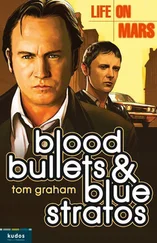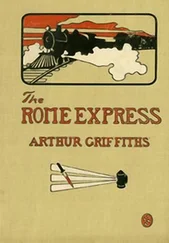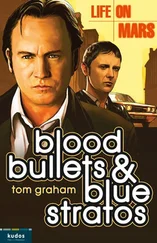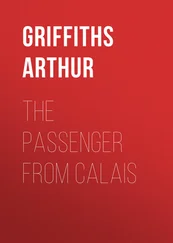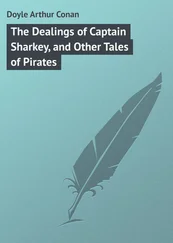Arthur Griffiths - The Thin Red Line; and Blue Blood
Здесь есть возможность читать онлайн «Arthur Griffiths - The Thin Red Line; and Blue Blood» — ознакомительный отрывок электронной книги совершенно бесплатно, а после прочтения отрывка купить полную версию. В некоторых случаях можно слушать аудио, скачать через торрент в формате fb2 и присутствует краткое содержание. Жанр: foreign_prose, foreign_antique, на английском языке. Описание произведения, (предисловие) а так же отзывы посетителей доступны на портале библиотеки ЛибКат.
- Название:The Thin Red Line; and Blue Blood
- Автор:
- Жанр:
- Год:неизвестен
- ISBN:нет данных
- Рейтинг книги:5 / 5. Голосов: 1
-
Избранное:Добавить в избранное
- Отзывы:
-
Ваша оценка:
- 100
- 1
- 2
- 3
- 4
- 5
The Thin Red Line; and Blue Blood: краткое содержание, описание и аннотация
Предлагаем к чтению аннотацию, описание, краткое содержание или предисловие (зависит от того, что написал сам автор книги «The Thin Red Line; and Blue Blood»). Если вы не нашли необходимую информацию о книге — напишите в комментариях, мы постараемся отыскать её.
The Thin Red Line; and Blue Blood — читать онлайн ознакомительный отрывок
Ниже представлен текст книги, разбитый по страницам. Система сохранения места последней прочитанной страницы, позволяет с удобством читать онлайн бесплатно книгу «The Thin Red Line; and Blue Blood», без необходимости каждый раз заново искать на чём Вы остановились. Поставьте закладку, и сможете в любой момент перейти на страницу, на которой закончили чтение.
Интервал:
Закладка:
While they paused in anxious debate, there came sounds of firing from their right, aimed evidently at the Russians in front of them, for the shot and shell ploughed through the ranks of the foe.
"What guns can those be?" asked Colonel Blythe. "They are catching them nicely in flank."
"French, sir, I expect," replied McKay. "That is the side of their attack."
"Those are English guns, I feel sure. I know the crack they make."
He was right; the guns belonged to Turner's battery, brought up at the most opportune juncture by Lord Raglan's express commands. To understand their appearance, and the important part they played in deciding the battle on this portion of the field, we must follow the other wing of the Royal Picts, which, when separated from the rest of the brigade, passed round the right flank of the village.
Hyde was with this detachment, and, as he afterwards told McKay, he saw Lord Raglan and his staff ride forward, alone and unprotected, across the river, straight into the enemy's position. In the river two of his staff were shot down, and the commander-in-chief promptly realised the meaning of this fire.
"Ah!" he cried. "If they can enfilade us here, we can certainly enfilade them on the rising ground above. Bring up some guns!"
It was not easy travelling for artillery, but Turner was a man whom no difficulties dismayed. Within an hour a couple of his guns had been dragged up the steep gradient, were unlimbered, and served by the officers themselves.
It was the fire of this artillery that relieved the Royal Picts of their most serious apprehensions. It tided them over the last critical phase of the hotly-contested action, and completed the discomfiture of the enemy on this side.
Matters had gone no less prosperously on the left. The renewed attack of the Light Division, supported by the Guards, had ended in the capture of the great redoubt; while Sir Colin Campbell, a veteran warrior, at the head of his "bare-legged savages," as they were christened by their affrighted foe, had made himself master of the Kourgané Hill.
CHAPTER XI.
AFTER THE BATTLE
The Battle of the Alma was won! Three short hours had sufficed to finish it, and by four o'clock the enemy was in full retreat. It was a flight rather than a retreat—a headlong, ignominious stampede, in which the fugitives cast aside their arms, accoutrements, knapsacks, everything that could hinder them as they ran. Pursuit, if promptly and vigorously carried out, would assuredly have cost them dear. But the allies were short of cavalry; the British, greatly weakened by their losses in this hard-fought field, could spare no fresh troops to follow; the French, although they had scarcely suffered, and had a large force available, would do nothing more; St. Arnaud declared pursuit impossible, and this, the first fatal error in the campaign, allowed the beaten general to draw off his shattered battalions.
But, if the allied leaders rejected the more abiding and substantial fruits of victory, they did not disdain the intoxicating but empty glories of an ovation from their troops. The generals were everywhere received with loud acclaims.
Deafening cheers greeted Lord Raglan as he rode slowly down the line. The cry was taken up by battalion after battalion, and went echoing along—the splendid, hearty applause of men who were glorifying their own achievements as well.
There was joy on the face of every man who had come out of the fight unscathed—the keen satisfaction of success, gloriously but hardly earned. Warm greetings were interchanged by all who met and talked together. Thus Lord Raglan and Sir Colin Campbell, both Peninsular veterans, shook hands in memory of comradeship on earlier fields. Few indeed had thus fought together before; but none were less cordial in their expressions of thankfulness and cordial good-will. They told each other of their adventures in the day—its episodes, perils, narrow, hair-breadth escapes! they inquired eagerly for friends; and then, as they learnt gradually the whole terrible truth, the awful price at which victory had been secured, moments that had been radiant grew overcast, and short-lived gladness fled.
"Next to a battle lost, nothing is so dreadful as a battle won," said Wellington, at the end, too, of his most triumphant day. The slaughter is a sad set-off against the glory; groans of anguish are the converse of exulting cheers. The field of conquest was stained with the life's blood of thousands. The dead lay all around; some on their backs, calmly sleeping as though death had inflicted no pangs; the bodies of others were writhed and twisted with the excruciating agony of their last hour. The wounded in every stage of suffering strewed the ground, mutilated by round shot and shell, shattered by grape, cut and slashed and stabbed by bayonet and sword.
Their cries, the loud shriek of acute pain, the long-drawn moan of the dying, the piercing appeal of those conscious, but unable to move, filled every echo, and one of the first and most pressing duties for all who could be spared was to afford help and succour.
Now the incompleteness of the subsidiary services of the English army became more strikingly apparent. It possessed no carefully organised, well-appointed ambulance trains, no minutely perfect field-hospitals, easily set up and ready to work at a moment's notice; medicines were wanting; there was little or no chloroform; the only surgical instruments were those the surgeons carried, while these indispensable assistants were by no means too numerous, and already worked off their legs.
Parties were organised by every regiment, with stretchers and water-bottles, to go over the field, to carry back the wounded to the coast, and afford what help they could. The Royal Picts, like the rest, hasten to send assistance to their stricken comrades. The bandsmen, who had taken no part in the action, were detailed for the duty, and the sergeant-major, at his own earnest request, was put in charge.
As they were on the point of marching off, General Wilders rode up. He had been separated, it will be remembered, from part of his brigade, and had still but a vague idea of how it had fared in the fight.
"I saw nothing of you, colonel, during the action. Worse luck I went with the wrong lot, on the right of the village."
"It is well some of the regiment escaped what we went through," said Colonel Blythe, sadly. "My left wing was nearly cut to pieces. I was never under such a fire."
"How many have you lost, do you suppose?"
"We are now mustering the regiment: a sorrowful business enough. Seven officers are missing."
"What are their names?"
"Popham, Smart, Drybergh, Arrowsmith—"
"Anastasius—my young cousin—is he safe?" hastily interrupted the general.
Colonel Blythe shook his head.
"I missed him half way up the hill; he was carrying the regimental colour, but when we got into the battery it was in the sergeant-major's hands. I wish to bring his—the sergeant-major's—conduct especially before your notice, general."
"The sergeant-major's? Very good. But if he took the colour he must know what happened to Anastasius. Call him, will you?"
Sergeant-major McKay came up and saluted.
"Mr. Wilders, sir," he told the general, "was wounded as we were breasting the slope."
"You saw him go down? Where was he hit?"
"I hadn't time to wait, sir."
"I should think not," interrupted Colonel Blythe; "but for him, general, we should never have carried the battery. I was dismounted, the men were checked, and just at the right moment the sergeant-major led them on."
"Bravely done, my lad! You shall hear of this again; I will make a special report to the commander of the forces. But there, that will keep. We must see after this poor boy."
"I was just sending off a party for the purpose," said the colonel.
Читать дальшеИнтервал:
Закладка:
Похожие книги на «The Thin Red Line; and Blue Blood»
Представляем Вашему вниманию похожие книги на «The Thin Red Line; and Blue Blood» списком для выбора. Мы отобрали схожую по названию и смыслу литературу в надежде предоставить читателям больше вариантов отыскать новые, интересные, ещё непрочитанные произведения.
Обсуждение, отзывы о книге «The Thin Red Line; and Blue Blood» и просто собственные мнения читателей. Оставьте ваши комментарии, напишите, что Вы думаете о произведении, его смысле или главных героях. Укажите что конкретно понравилось, а что нет, и почему Вы так считаете.

